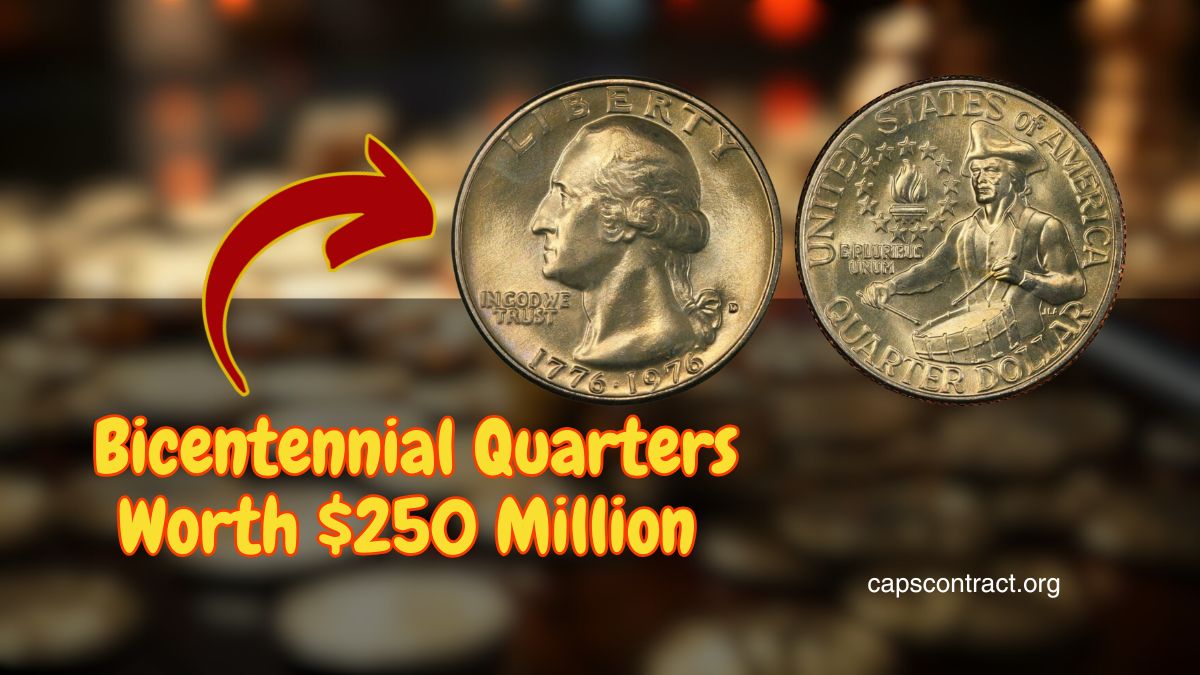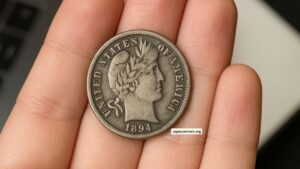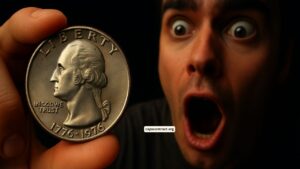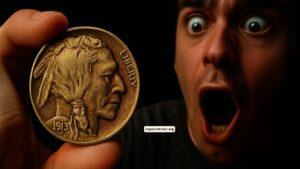Bicentennial quarters, minted in 1976 to celebrate 200 years of American independence, have become one of the most iconic collector’s items in U.S. coinage.
While millions were made, a small number of rare Bicentennial quarters have been discovered with unusual errors, unique compositions, or near-perfect conditions, making them incredibly valuable.
Some reports claim that a handful of these coins are worth up to $250 million each — and astonishingly, some may still be circulating among regular pocket change.
What Makes a Bicentennial Quarter Valuable?
Several factors contribute to the extraordinary value of these coins:
- Rarity: Unique die varieties, error strikes, and low mintage silver proofs.
- Condition: Quarters in MS-67 or higher or with deep cameo finishes.
- Metal composition: Special silver-clad versions are far more valuable than the standard copper-nickel clad.
- Minting errors: Off-center strikes, double dies, and wrong planchet errors boost value significantly.
10 Rare Bicentennial Quarters Worth Big Money
| No. | Coin Type | Mint Mark | Features | Estimated Value |
|---|---|---|---|---|
| 1 | Silver-Clad Proof | S | 40% silver, mirror-like finish | $120,000 – $250M |
| 2 | Double Die Obverse | D or None | Doubled lettering/date | $5,000 – $100,000+ |
| 3 | Deep Cameo Silver Proof | S | Highly reflective design contrast | $25,000 – $250M |
| 4 | Struck on Wrong Planchet | P | Struck on dime planchet | $15,000 – $80,000 |
| 5 | Off-Center Strike | D or P | Misaligned image | $10,000 – $70,000 |
| 6 | Full Strike MS-68 | D | Rare perfect strike condition | $10,000 – $50,000 |
| 7 | Missing Clad Layer | D | Exposed copper core | $5,000 – $25,000 |
| 8 | Clipped Planchet Error | Any | Quarter appears clipped | $2,500 – $15,000 |
| 9 | Transitional Error (Wrong Composition) | P or D | Mispaired metal content | $20,000 – $200,000 |
| 10 | Experimental Strike | S | Unique test coins, extremely rare | Up to $250M |
Most Sought-After Varieties
1. Silver-Clad Bicentennial Quarters
Only a limited number were minted with 40% silver content, originally included in collector sets. These coins are much more valuable than standard circulation quarters and are often mistaken for common coins due to their similar appearance.
2. Double Die Error Quarters
Double die obverse errors display doubling in the date or the word “LIBERTY”. These are highly collectible, with well-centered and high-grade specimens reaching six figures.
3. Deep Cameo Silver Proofs
These coins feature ultra-sharp, mirrored surfaces and frosted designs. Perfect PR70 DCAM examples command massive premiums, especially those graded by top-tier services.
4. Wrong Planchet Strikes
Incredibly rare, these coins were mistakenly struck on dime or foreign coin planchets. Their unusual weight and size make them easy to miss — but collectors are willing to pay tens of thousands for them.
5. Experimental or Prototype Quarters
Some believe that prototype Bicentennial quarters, never released to the public, were accidentally circulated. These coins are considered priceless, with rumored private sales approaching $250 million.
Signs You May Have One
If you come across a 1976 quarter, check the following:
- Mint Mark: Look for “S” (San Francisco), “D” (Denver), or no mint mark (Philadelphia).
- Weight: Silver-clad versions weigh slightly more (~5.75g) than standard quarters (~5.67g).
- Design Details: Look for doubling, off-center images, or missing layers.
- Finish: Deep cameo or mirror-like proof surfaces can indicate high value.
How to Verify and Sell
If you believe you have a rare Bicentennial quarter:
- Do not clean it – cleaning damages value.
- Store it in a protective coin holder.
- Have it professionally graded by services like PCGS or NGC.
- Rare coins with proper certification can fetch high prices at auctions or private sales.
While not all Bicentennial quarters are valuable, a select few are worth life-changing sums — some up to $250 million. These coins are rare but may still be circulating unknowingly.
With the right knowledge and attention to detail, you could find a fortune hiding in your pocket change. Start checking today — your treasure could be just one coin away.
FAQs
Are Bicentennial quarters from 1976 automatically valuable?
No. Most are only worth face value unless they have unique characteristics such as errors, silver content, or are in perfect condition.
Can I still find these quarters in circulation?
Yes, many Bicentennial quarters are still in circulation. While most are common, rare varieties may still be out there, overlooked by the general public.
What’s the easiest way to check if I have a valuable one?
Look for mint marks, weight differences, and obvious errors. If you suspect something rare, get it professionally evaluated.




